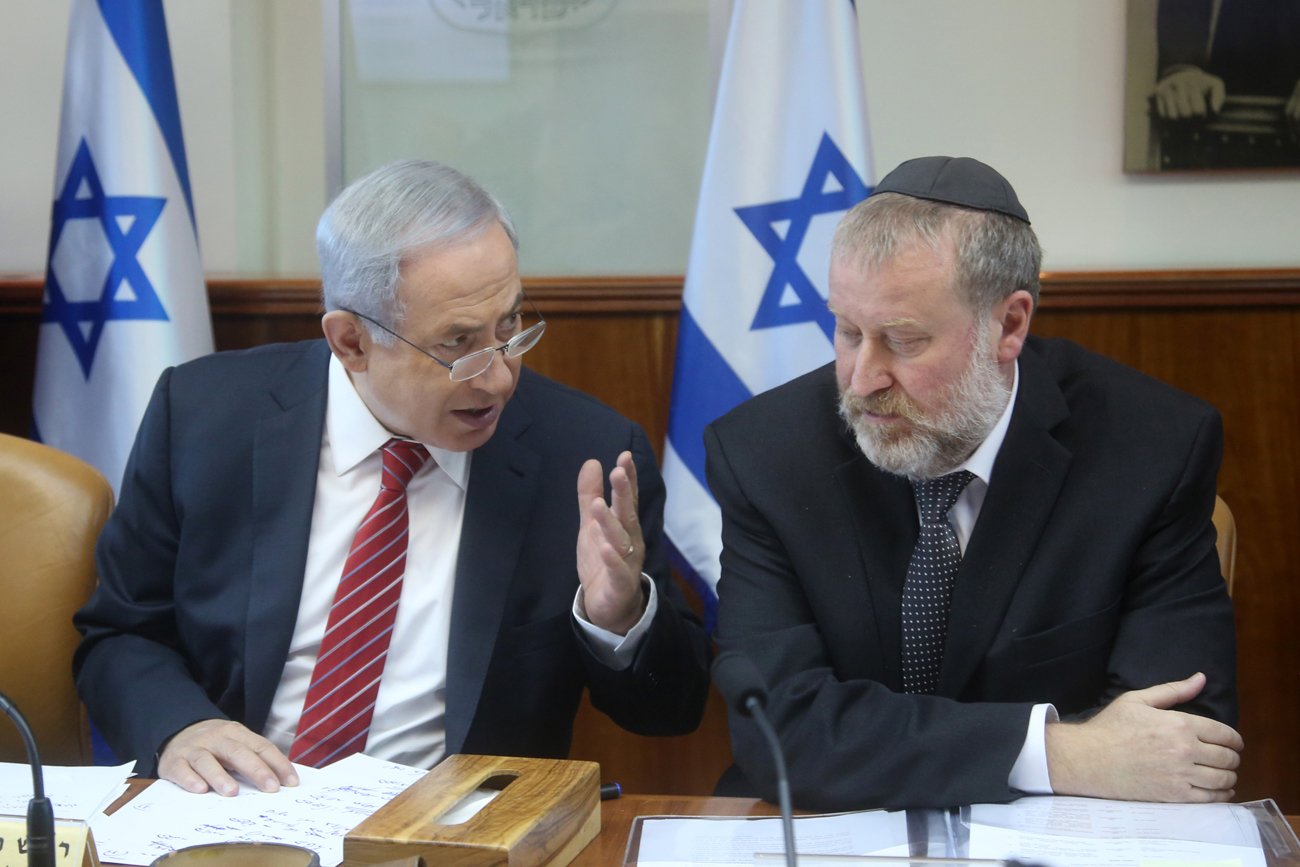Getting your Trinity Audio player ready...
The High Court of Justice said on Sunday it will debate whether Prime Minister Benjamin Netanyahu could form a government despite the incumbent being indicted in three different criminal cases.
The court announced it had received and approved a petition signed by 67 different individuals demanding a ruling on whether a Knesset member battling criminal charges can be tasked with forming a government.
1 View gallery


Prime Minister Benjamin Netanyahu and Attorney General Avichai Mandelblit
(Photo: Mark Israel Salem)
Attorney General Avichai Mandelblit, who avoided addressing the issue as long as it was solely a theoretical question, has been ordered by the High Court to devise a legal opinion on the matter 48 hours before the court assembles to debate the issue. The plenary is still pending as no date has yet been decided.
On Friday, Mandelblit refused to rule on the issue, informing the court that he would only issue a legal opinion on the matter if it were to be taken up by the court.
Last month, Mandelblit ruled that Netanyahu can remain interim prime minister, just days after serving him with charges of fraud, breach of trust and bribery.
Mandelblit has claimed in the past that he would have preferred it if the issue of Netanyahu's legal standing was debated as a public rather than a legal issue.
First published: 17:48, 12.22.19

